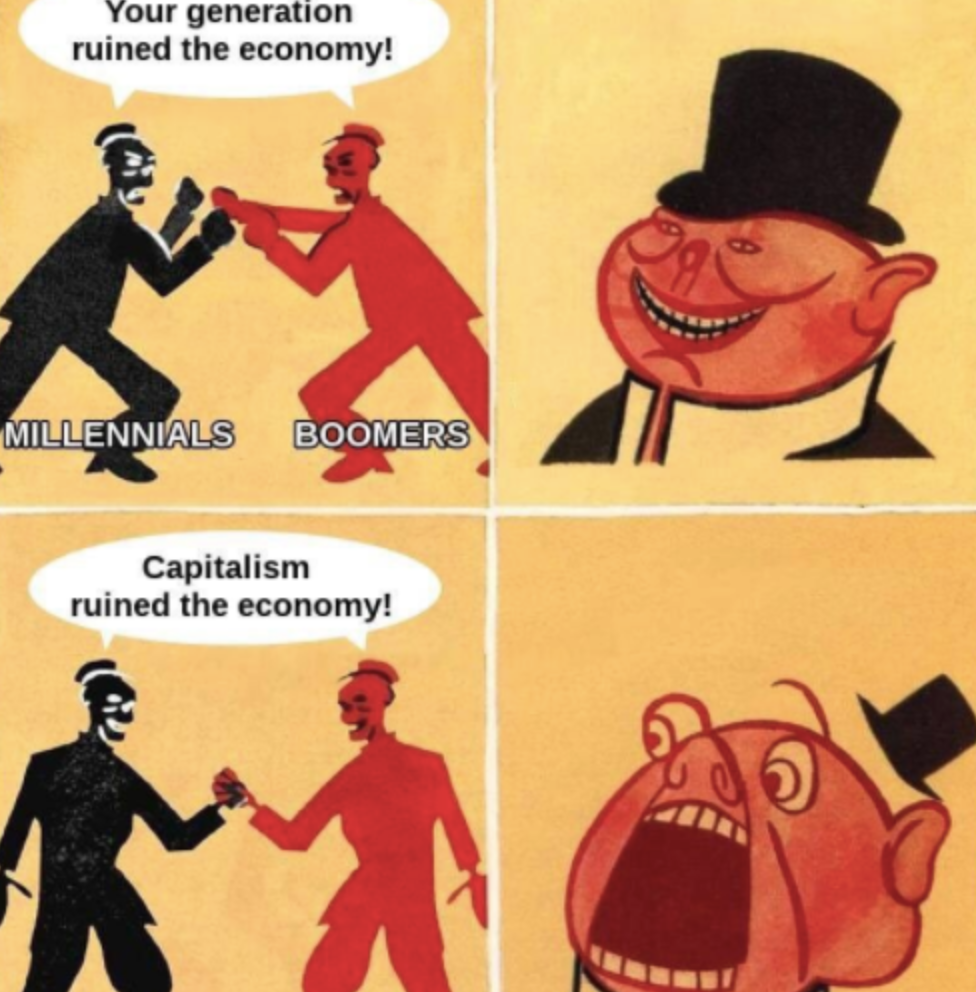By Luena Maillard ’20
We have all seen the articles, ‘Millennials are killing the golf industry’ ‘Millennials are killing the diamond industry’ ‘Millennials are killing the [insert high-cost business here}’. More recently, articles of that nature have started appearing pinning the newest generation of Gen Z’ers as such murderers of industry.
The reverse is true as well, I myself am not immune to the ever-present ‘baby-boomers ruined the economy’ jokes that run throughout younger generations. As a certified ‘person who was born in 1998 in that weird period between generations’ I have never questioned the concept of separating groups of people by birth year before, as before me had already existed so many. As integral as they appear today, social generations as a whole have only existed for a century or so, commencing with the ‘Lost Generation,’ used to define those who fought in World War I. Before that, the term was strictly used to define familial generations, a way of tracing your ancestors within your personal family.
So how did this term broaden to something we can use to generalize entire groups of people?
Essentially, there had to be a reshaping of the notions of time and social change. Political rhetoric and the spread of nationalism in the early 19th century encouraged the idea that society progresses and the start of movements for change begin with the youth. One needs only to look at the youth movements which were growing in Europe, ‘Young Italy’, ‘The German Youth Movement’, and others, to observe the budding shift in thinking towards the generational.
Now, six generations later, we are seeing the steady growth of older generations using generational terminology in order to bypass class analysis. It is an insidious and extremely convenient tactic by the ruling class. By framing generations as comprehensible ‘classes’ themselves with differing interests from each other (i.e. Millennials hate golf, diamonds, divorce), this attitude positions all people within a certain age as responsible for the issues that we are seeing in society today, such as higher costs of living or inflation. Therein lies the inherent problem in framing generations this way:it very conveniently overlooks the fact that there exist working and ruling class peoples throughout every generation. Blaming all people within a certain age veils the responsibility of the ruling class, the 1%, for the failings of the current capitalist system. This works to not only harm the working class, but forces society to follow a consistent red herring, to the benefit of the ruling class.



